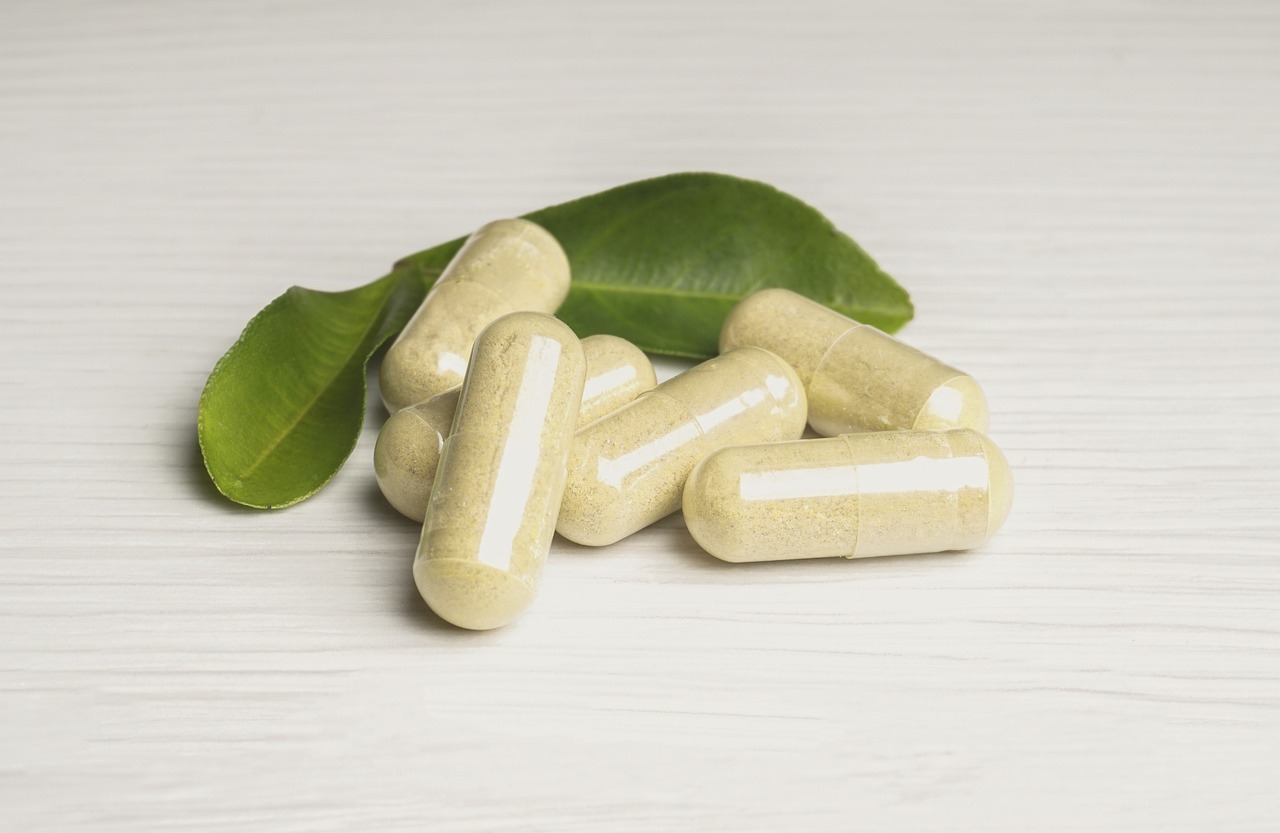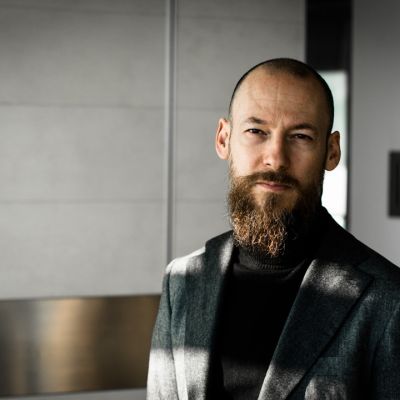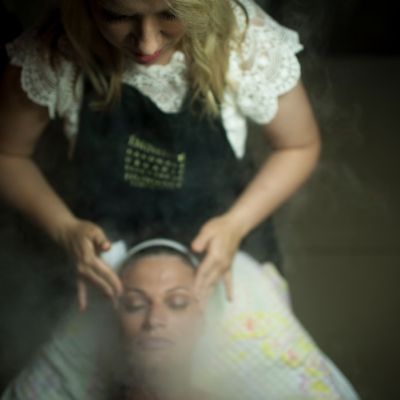As shelves overflow with trendy hair treatments, the search for the perfect shampoo, conditioner, or hair mask for damaged hair is never-ending. But the real secret to glowing, healthy hair starts from within, and we’ve got the guide to the best vitamins for hair growth.
Whether you get them from diet, sunlight, or supplements, certain vitamins are essential for healthy hair growth. If you don’t get enough of these naturally, you may develop a vitamin deficiency, impacting your hair health.
If you’re tired of masking the problem, it’s time to address it at the source. With the help of HairClub’s expertise, read on to uncover the truth about the best vitamins for hair growth.
The Role of Nutrition in Hair Health
Hair is the second fastest-growing tissue in the human body. This means your hair requires a steady supply of nutrients to sustain rapid growth and maintain health. The right vitamins contribute to processes like cell growth and follicle regeneration.
When your body lacks the right vitamins, hair can become weak, brittle, or thin. In some cases, a nutritional deficiency can result in hair loss.
Best Vitamins for Hair Growth
So, what’s the best vitamin for hair growth? There’s actually no one best vitamin for hair growth, but a combination of the best vitamins and nutrients can go a long way toward thicker, healthier hair.
Here are some of the best hair vitamins to promote growth, thickness, and shine.
Biotin (Vitamin B7)
Found naturally in sunflower seeds and eggs, biotin is a critical vitamin for your hair, skin, and nails. The best biotin vitamins for hair growth are actually for individuals with a biotin deficiency. Additional supplementation for those without a deficiency has no proven efficacy for hair growth.
Vitamin D
Vitamin D is essential for driving the cycle of hair growth. When the body doesn’t get enough vitamin D, you can experience slower hair growth, shedding, or even a pause in hair growth.
While you can get vitamin D through sun exposure, you can also find it in dietary sources like fatty fish, meat, and dairy.
Vitamin E
Vitamin E is best known for its role as an antioxidant. It can also promote circulation to improve scalp health. One study found that using supplements with vitamin E improved the hair health of people with alopecia.
Folic Acid (Vitamin B9)
Folic is a B vitamin and a synthetic version of folate. While research is limited, folic acid may help regulate keratin production, the hair shaft’s primary protein. A deficiency of this vitamin could lead to thinning hair shafts and hair loss.
Vitamin A
Vitamin A is an essential nutrient for many bodily functions, including vision, reproduction, embryonic development, growth, and immune function. In hair, a deficiency can lead to follicular hyperkeratosis, a buildup of keratin around the hair follicles on the scalp.
Essential Minerals for Hair Vitality
Minerals are essential nutrients that nourish the scalp, strengthen strands, and promote healthy hair follicles. Here are the minerals that keep your locks looking vibrant and healthy.
Zinc
Zinc is a trace element that plays a vital role in cell division and reproduction, including the cells responsible for hair growth. It helps develop the hair follicle and improves hair health overall.
Iron
Iron deficiency is one of the most common vitamin/mineral deficiencies. Among other symptoms, it can slow or even stop hair growth. This can lead to thinning hair and hair loss.
Effects of Vitamin and Mineral Deficiencies on Hair Growth
If you are deficient in any of the vitamins and minerals essential for healthy hair, this can affect your hair’s strength, texture, and appearance.
Common signs of deficiencies include:
- Thinning hair
- Excessive shedding
- Brittle hair
- Dry or dull hair
- Slow hair growth
- Patchy hair loss
Prolonged vitamin deficiencies can have even more serious effects, potentially leading to hair loss or stunted hair regrowth. If these nutritional gaps aren’t addressed, they can lead to permanent scarring or hair loss.
How Diet Impacts Hair Health
A lack of proper nutrients in your diet can negatively impact hair growth and structure. Eating a well-balanced diet can provide you with most of the vitamins and minerals you need for healthy hair.
To promote better hair health, try to:
- Prioritize fruits and vegetables
- Eat superfoods like blueberries, kale, chia seeds, and more
- Switch to whole grains
- Drink fat-free or low-fat milk
- Limit your intake of sodium, saturated and trans fats, cholesterol, and sugar
- Eat omega-3 fatty acids through fatty fish, walnuts, and oils
Lifestyle Choices for Optimal Hair Health
The foods you put in your body aren’t the only way to improve your hair health. Clinical studies show that your lifestyle choices can also play a role in thinning hair or hair loss.
Stress
Studies show that periods of acute or chronic stress can lead to increased hair loss.
To manage everyday stress, here are a few activities you can incorporate into your routine:
- Moderate exercise
- Deep breathing or meditation
- Journaling
- Creative activities
- Aromatherapy
- Spending time outdoors
Hydration
Dehydration doesn’t directly cause hair loss. However, research shows that even mild dehydration can reduce blood flow to your skin, including your scalp. This could potentially affect hair growth.
Make sure you’re drinking the recommended 11.5 cups for women and 15.5 cups for men per day.
Exercise
While research on this topic is limited, exercise increases blood circulation and oxygen in cells, which can support hair growth. Regular exercise also reduces stress, another potential factor in hair loss.
According to the American Heart Association, you should exercise at least 150 minutes per week for the best results.
When To Consider Supplements
For those on a limited diet or with a medical condition, your diet might not accommodate all the nutrients you need for healthy hair. If you’re experiencing noticeable hair thinning, hair loss, or a slower-than-usual growth cycle and suspect nutritional deficiencies could be contributing, it might be time for hair health vitamins.
These hair growth supplements contain some of the most common vitamins for hair growth, such as biotin, iron, zinc, vitamin D, and vitamin E.
It’s also important to remember that supplements are meant to complement a balanced diet and healthy lifestyle, not replace them. If you’re concerned about hair loss or slow growth, it’s always best to consult a healthcare professional to identify the root cause. Hair loss experts like the team at HairClub can also help you find the targeted approach for your individual needs.
Consulting With Professionals for Hair Health
Nutritional and supplemental changes are a great start, but it takes professional expertise to truly optimize your hair health. Hair care experts can help identify the underlying cause of hair loss and guide you to the most effective treatments.
At HairClub, we offer a free consultation to help you address the root cause of your hair concerns. You can then take home a personalized report that includes an in-depth evaluation of your hair loss and scalp health, a customized treatment plan, and a detailed cost estimate.
Whether you want to improve your hair health or explore advanced hair restoration solutions, HairClub’s personalized approach targets the root cause of hair loss for more effective results.
Achieving Healthy Hair Through Proper Nutrition
Healthy hair starts with the right vitamins. A well-balanced diet can help maintain your hair’s strength, appearance, and growth cycle. It nourishes your body—and hair—from within.
For many, however, the secret to restoring hair health lies not just in what you eat but in the guidance of a trusted professional. HairClub offers cutting-edge surgical and non-surgical solutions to bring back the hair you’ve always wanted.
See for yourself how restoring your hair can change your life—book a consultation with our experts today!





